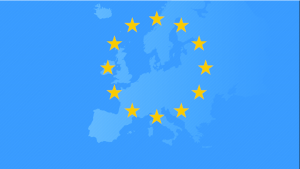What It Takes to Rebuild Trust in Institutions

Kristalina Georgieva
 In these uncertain times, where there is concern about shrinking civic space and the future of fair participation in political and economic decision making, we at the World Bank Group see a need to focus on the fundamentals: building institutions based on transparencyAccording to OGP’s Articles of Governance, transparency occurs when “government-held information (including on activities and decisions) is open, comprehensive, timely, freely available to the pub... More and participation, an agenda we hope Europe will continue to lead.
In these uncertain times, where there is concern about shrinking civic space and the future of fair participation in political and economic decision making, we at the World Bank Group see a need to focus on the fundamentals: building institutions based on transparencyAccording to OGP’s Articles of Governance, transparency occurs when “government-held information (including on activities and decisions) is open, comprehensive, timely, freely available to the pub... More and participation, an agenda we hope Europe will continue to lead.
As European Commissioner for Humanitarian AidMore and better information about aid helps partner countries and donor institutions plan and manage aid resources more effectively, parliaments and civil society to hold governments accountable for t..., I travelled to Haiti in the aftermath of the devastating 2010 earthquake. Over 200,000 people lost their lives and a large part of Haiti’s vital infrastructure was destroyed along with homes and businesses. No matter where I went during my visit, the people of Haiti had the same message: they told me that the European Commission should not give any money to their government because it would be stolen.
At the end of my visit, I concluded that the destruction caused by the earthquake reflected a deeper problem. I was convinced that the legacy of misrule under Papa Doc and Baby Doc presented an even greater challenge for Haiti. Weak institutions and pervasive corruption meant that Haiti was more vulnerable when disaster struck, and ill-equipped to recover in the aftermath.
As CEO of the World Bank, I am committed to our goals of eliminating poverty and boosting shared prosperity. Achieving these goals is not just a matter of money, it also depends on human capital, policies for inclusive growth, and tapping into new ideas. Success meanwhile depends on effective institutions and broadbased governance.
While few countries endure conditions as tough as those in Haiti, many face a crisis of trust. We therefore need to consider how development goals can be achieved when faith in institutions is low.
Trust brings a development dividend. Countries that have low levels of trust also have lower levels of investment and, consequently, lower rates of growth. This should not surprise us. When trust in institutions is low, people are forced to find informal ways of settling disputes, women are less likely to report harassment or domestic violence, and firms are less likely to pay taxes or follow environmental regulations.
Conversely, when trust is higher, behaviour becomes more constructive. People are more willing to use financial intermediaries that help them save and leverage their money. These intermediaries are in turn more likely to do business with strangers and to set up firms, helping them specialise and achieve economies of scale. They are also more willing to invest in research and development, which in turn contributes to greater innovation.
The same applies to factors that contribute to poverty reduction. GenderOGP participating governments are bringing gender perspectives to popular policy areas, ensuring diversity in participatory processes, and specifically targeting gender gaps in policies to address gov... More equality, environmental protection, domestic revenue mobilisation – all of these depend on trust. Institutions and trust go hand in hand, each can either reinforce or undermine the other. Just as we need to understand how to strengthen institutions, we must also understand the factors that weaken trust.
Amongst the most harmful factors are corruption, inequality, lack of transparency, and exclusion. When corruption makes institutions unfair, people’s belief in those institutions diminishes. Inequality weakens trust, especially when it is seen as the result of an uneven playing field. When people have no say in policy-making or do not find it transparent, they feel excluded and begin to question the fairness of the process.
Because institutions and trust are intertwined, a vicious circle can emerge. For example, a lack of faith in the process of developing public policies can lead to people losing trust and opting out, thereby robbing the resulting policy of the input which would have made it better.
Are there ways to strengthen trust in societies? And, if we find ways to halt corrosive processes, can we turn the vicious circle into a virtuous circle? At the World Bank Group, we believe the answer is yes.
Studies show that regulatory compliance goes up when there has been transparency during the process of developing regulations and when those most affected have had an opportunity to participate and provide input. Our project on measuring Global Indicators of Regulatory GovernanceWhen citizens understand and help to shape the rules that govern society, regulations are more effective, business environments are stronger, and levels of corruption are lower. Technical specificatio... is exploring how governments interact with the public when shaping regulations that affect businesses and people. It covers issues such as the publishing of draft regulations for comments and whether people can access all the laws and regulations currently in force.
Transparency is critical to building trust, both through expanding access to information and strengthening public participationGiving citizens opportunities to provide input into government decision-making leads to more effective governance, improved public service delivery, and more equitable outcomes. Technical specificatio.... Transparency is the key objective of long-standing initiatives that the World Bank supports across several major sectors, including the Global Partnership for Social AccountabilityTransparency of public service delivery is not enough on its own; giving citizens opportunities to monitor progress on the ground and hold their governments accountable improves the quality of these s... (GPSA), the Public Expenditure and Financial Accountability (PEFA) framework, and the Extractive IndustriesApplying open government values of transparency, participation, and accountability to extractive industries can decrease corruption, safeguard community interests and needs, and support environmental ... Transparency Initiative (EITI), as well as the Open Government PartnershipThe Open Government Partnership (OGP) is a multi-stakeholder initiative focused on improving government transparency, ensuring opportunities for citizen participation in public matters, and strengthen... More (OGP).
Ensuring that countries can deliver core services is another key factor. The current Innovations in TaxPlacing transparency, accountability, and participation at the center of tax policy can ensure that burdens are distributed equitably across society. Technical specifications: Commitments related to c... Compliance project combines investments in enforcement, facilitation, and trust in tax systems, all conceived within a broader strategy to confront political barriers to reform and strengthen fiscal contracts. In focusing on fairness, equity, reciprocity, and accountability, this pragmatic approach aims to turn the vicious circle virtuous.
In these uncertain times, where there is concern about shrinking civic space and the future of fair participation in political and economic decision making, we at the World Bank Group see a need to focus on the fundamentals: building institutions based on transparency and participation, an agenda we hope Europe will continue to lead. These are the foundations for openness and multilateralism in Europe and across the broader international community.
Related Content

Do We Trust Democracy? A Future Agenda for Europe
The European election of 2019 asked voters to choose between more or less Europe, between inclusion and diversity or exclusion and nationalism, and between societies that are more open or…
